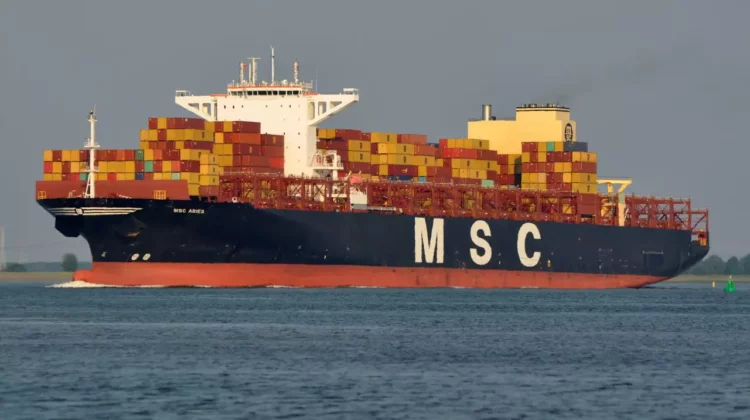
MSC’s market share now nearly 20%, Maersk under pressure
GENEVA : MSC now has a market share of nearly 20% in the container the shipping industry, an all-time high for any liner operator.
According to Alphaliner, MSC has added at least 400,000 TEUs to its fleet so far this year.
The Swiss-Italian market leader’s share of the operated fleet rose to 19.8% at the end of July, marking the highest-ever figure recorded by a carrier.
Only Maersk Line, which MSC surpassed in 2022, has come close to dominating the market in the same way. Maersk’s market share peaked at 19.4% in 2018 but has seen its market share decline in each of the five consecutive years since then.
The Gianluigi Aponte-headed MSC is striving to widen its lead over its peers, with massive
newbuilding orders lined up.
MSC has ordered six 19,000 TEU ships at Shanghai Waigaoqiao Shipbuilding (SWS) and eight 11,500 TEU vessels at Penglai Zhongbai Jinglu Ship Industry (Jinglu), all to be LNG dual-fuelled.
These orders came just days after MSC booked a dozen 19,000 TEU LNG dual-fuelled ships
at Zhoushan Changhong International Shipyard, taking its order book to 1.84 million TEUs.
The delivery of 25 newbuildings, including 75,000 TEUs of methanol Neopanamax boxships, temporarily halted Maersk Line’s slide in the first half of the year, but the downward trend resumed in July.
Maersk, which has opted to cap fleet size in favour of non-shipping growth, reiterated in
April intending to remain in a target fleet range of 4.1 to 4.3 million TEUs. This will inevitably curb its market share at a time of rapid growth by competitors, notably MSC and CMA CGM.
Five major carriers (MSC, CMA CGM, COSCO, Ocean Network Express and Evergreen) now
have orderbooks bigger than Maersk’s, which stands at 442,374 TEUs.
Alphaliner said: “The group could come under pressure from shareholders for the strategy if financial returns do not improve, with the group’s preliminary figures for Q2 indicating an operating margin of 6%, despite the Red Sea crisis.”

